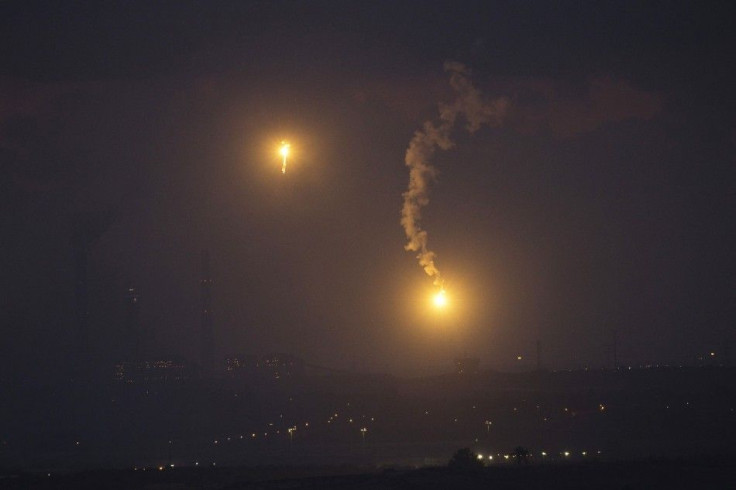Israel Invades Gaza after Killing 231 Palestinians & Injuring 1,700 in Last 10 Days

Israel launched it ground invasion on Gaza after Prime Minister Benjamin Netanyahu had placed orders to the military to go ahead. Israeli tanks arrived at Gaza on Thursday, July 17. One may wonder how long the atrocious killings will continue as at least 231 Palestinians including 39 children have already died due to Israeli airstrikes in the last 10 days. More than 1,700 have been injured in Palestine while there has been one reported casualty in Israel.
Israeli artillery, warships and jets continue heavy bombing along the Gaza border as, according to Al Jazeera, the northern part of the city is mostly targeted. For unspecified reasons, the city was stripped of electricity. The ground invasion will majorly focus on destroying tunnels which connect Israel with Gaza, according to Defence Minister Moshe Ya'alon.
As one may expect, Hamas took the invasion as a major mortification. The organisation, which Israel and several Western countries consider as a terrorist establishment, said that the invasion would bring about "dreadful consequences." Hamas spokesman Sami Abu Zuhri said that neither Hamas leaders not the people of the country were scared by the invasion. "We warn Netanyahu of the dreadful consequences of such a foolish act," he said.
A group of 13 Hamas gunmen reportedly tried entering the Jewish country through a tunnel on Thursday. According to the Israeli army, 8 of those gunmen were killed. This was the second time Palestinian gunmen tried entering Israel. According to the army, the operation would cause "significant damage" to Hamas' infrastructure.
A ceasefire proposal brokered by Egypt failed as Hamas had refused to attend the meeting in Cairo unless its demands were met. Ron Dermer, the Israeli ambassador to the United States, earlier had a Q&A session on Twitter where he claimed that it was Israel's right to launch missiles on Palestinian hospitals. Dermer said that Hamas was suspected to have been using those hospitals to launch rockets. "Israel cares more about Pal civilians in Gaza than Hamas," he said.
Contact the writer: s.mukhopadhyay@ibtimes.com.au






